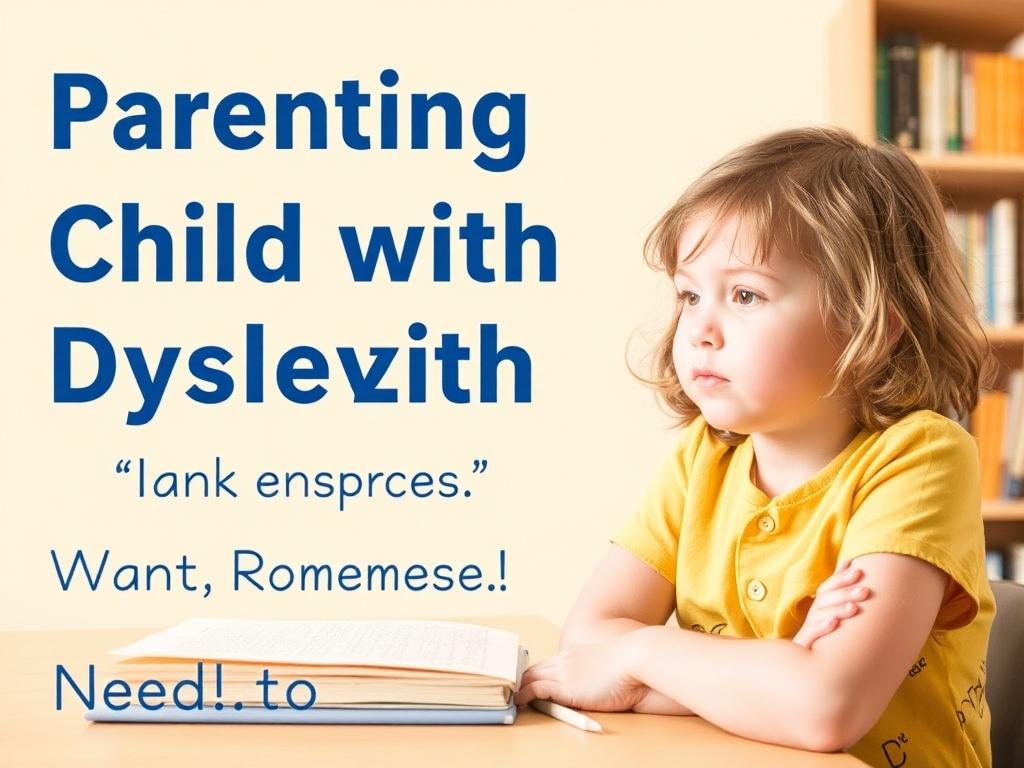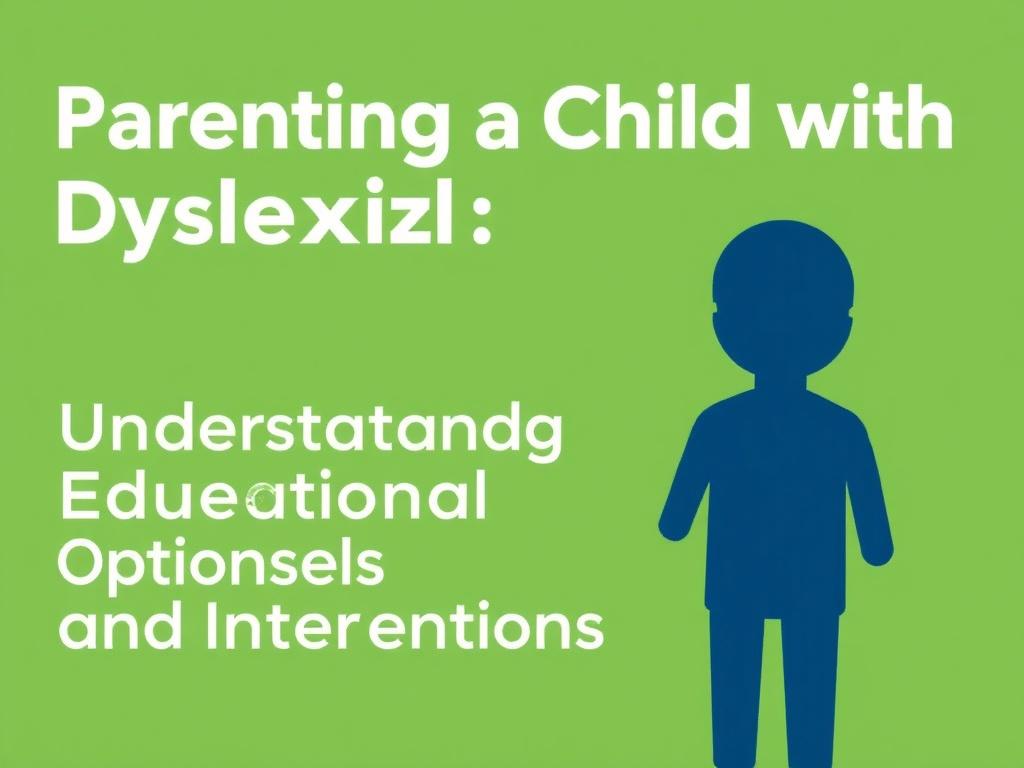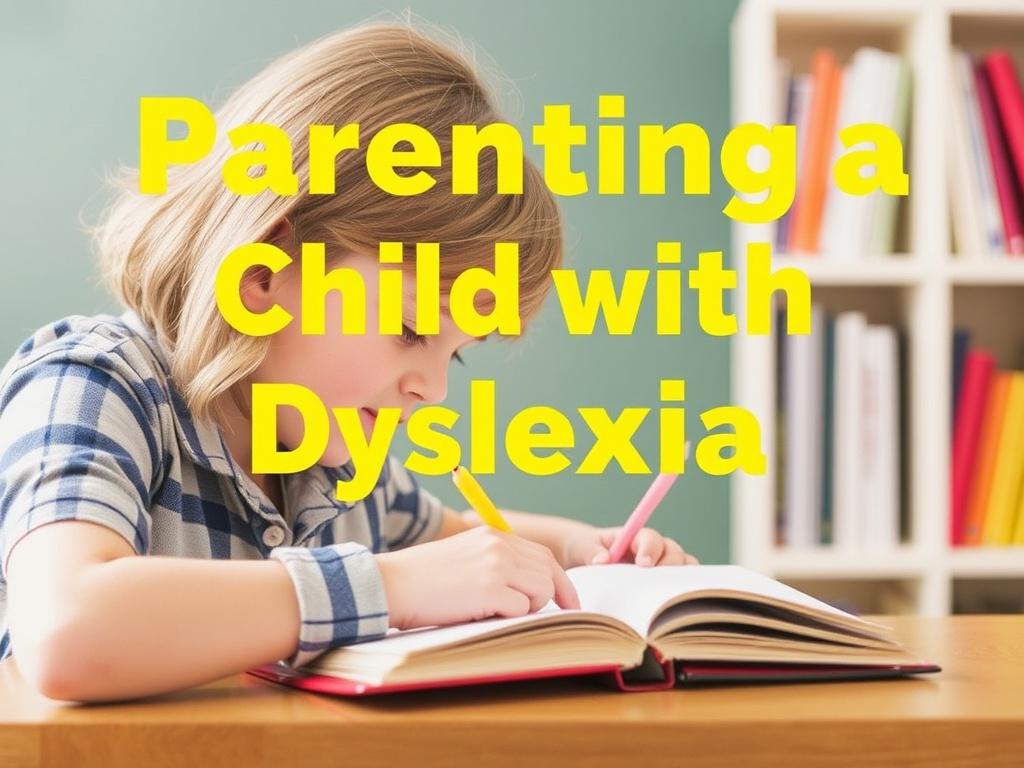SQLITE NOT INSTALLED
Raising a child is one of life’s greatest adventures, filled with joys, challenges, and endless opportunities for growth. When your child has dyslexia, this journey can become even more complex, but it also becomes deeply rewarding. Understanding what dyslexia is, how it affects your child, and how you can best support them is crucial to helping them thrive. In this comprehensive guide, we’ll explore everything you need to know about parenting a child with dyslexia—from recognizing symptoms and seeking diagnosis to effective strategies for learning and emotional support.
If you’re a parent wondering how to support your child with dyslexia, you’re not alone. This article will provide you with insights, practical advice, and emotional guidance to empower your family. Let’s begin by understanding what dyslexia really is.
What Is Dyslexia? Understanding the Basics
Dyslexia is a common learning difference that primarily affects reading and language processing. Despite popular myths, dyslexia doesn’t mean a child is less intelligent. In fact, many people with dyslexia are incredibly bright and creative. The condition simply means their brains process written material differently, leading to difficulties with reading, spelling, writing, and sometimes speaking.
Dyslexia is neurobiological and hereditary, often running in families. It’s not caused by poor teaching or a lack of effort but is related to how the brain processes symbols and language. Early recognition and intervention can make a significant difference.
Common Signs and Symptoms of Dyslexia in Children
Every child is unique, but certain signs can indicate dyslexia. As a parent, observing these symptoms early can help you seek timely support.
- Difficulty learning to read despite normal intelligence and instruction
- Problems recognizing letters and associating sounds with words
- Mixing up the order of letters in words
- Slow and laborious reading or writing
- Problems spelling, frequently reversing letters (such as “b” and “d”)
- Asked to reread sentences to understand them
- Difficulty following multi-step directions
- Oral language delays, such as trouble finding the right words
If you think your child may show some of these signs, it’s important to approach the subject with sensitivity and care. Dyslexia can be confusing and frustrating for children, so providing reassurance is key.
Getting a Diagnosis: What Parents Need to Know

After noticing signs of dyslexia in your child, the next logical step is seeking a professional evaluation. Getting an accurate diagnosis is crucial because it paves the way for targeted support and interventions that address your child’s unique needs.
Who Can Diagnose Dyslexia?
Typically, a multidisciplinary team conducts a diagnosis. This may include psychologists, speech and language therapists, educational specialists, and pediatricians. In many cases, schools can initiate assessments or refer you to appropriate professionals.
What Does the Diagnosis Process Look Like?
The evaluation usually involves a series of tests that assess your child’s reading, language, and cognitive skills. Here’s a basic overview:
| Test | What It Measures | Purpose |
|---|---|---|
| Reading Fluency Test | Speed and accuracy of reading | Identifies difficulties in decoding words |
| Phonological Awareness Test | Ability to recognize and manipulate sounds | Checks for phonemic processing issues |
| Rapid Naming Test | Speed of naming letters, numbers, objects | Measures processing speed |
| IQ Test | General cognitive ability | Ensures reading difficulties aren’t due to intellectual disability |
Once the diagnosis is confirmed, parents can collaborate with educators and specialists to build a personalized learning plan.
Creating a Supportive Home Environment for Your Child with Dyslexia
Parenting a child with dyslexia means becoming a passionate advocate and creating a loving environment where your child feels safe and understood. Home plays a critical role in your child’s development and confidence.
Emotional Support: Nurturing Confidence and Self-Esteem
Dyslexia can be emotionally challenging. Your child may experience frustration, embarrassment, or low self-esteem as they face academic difficulties. It’s essential to focus on their strengths and celebrate all victories, however small.
Some tips for emotional support include:
- Listen actively: Encourage your child to express their feelings openly.
- Provide positive reinforcement: Praise effort rather than just results to foster a growth mindset.
- Model patience and optimism: Show them that challenges are opportunities to learn and grow.
- Connect with others: Joining support groups can help children see they’re not alone.
Practical Home Strategies for Learning
Adapting your home routine can help make learning easier and less stressful. Some effective strategies include:
- Set up a quiet, well-lit study space: Minimize distractions so your child can focus better.
- Break homework into manageable chunks: Use timers or schedules to create structure.
- Use multisensory learning techniques: Incorporate visual, auditory, and hands-on activities.
- Read together: Choose books that interest your child to make reading enjoyable.
- Use assistive technology: Tools like text-to-speech apps can support reading fluency.
Understanding Educational Options and Interventions

Supporting your child with dyslexia in the classroom is vital. Schools may offer a variety of programs and accommodations designed to meet your child’s educational needs.
Specialized Instruction Methods
One of the most effective approaches for children with dyslexia is structured literacy, often associated with programs like Orton-Gillingham. These methods focus on explicit teaching of phonics, spelling rules, and language patterns.
Here are key educational strategies:
| Approach | Description | Benefits |
|---|---|---|
| Orton-Gillingham | Multisensory, structured language instruction | Helps build foundational reading skills step-by-step |
| Wilson Reading System | Orton-Gillingham based program with sequenced lessons | Promotes decoding and encoding proficiency |
| Assistive Technology | Text-to-speech, audiobooks, and voice recognition software | Supports reading, writing, and comprehension efforts |
Classroom Accommodations and Legal Rights
Your child has the right to receive appropriate accommodations under laws such as the Individuals with Disabilities Education Act (IDEA) and Section 504 of the Rehabilitation Act. These may include:
- Extra time on tests and assignments
- Provision of audiobooks or oral exam options
- Preferential seating to reduce distractions
- Use of technology aids like speech-to-text programs
- Access to tutoring or reading specialists
Working closely with your child’s teachers and school administrators ensures that these accommodations are implemented effectively.
Helping Your Child Develop Life Skills Beyond Reading
While academic progress is important, parenting a child with dyslexia also involves nurturing skills that build independence and resilience. Many children with dyslexia are creative thinkers, problem solvers, and can excel in areas outside traditional academics.
Encouraging Strengths and Talents
Help your child explore activities that highlight their talents and passions—whether that’s art, music, sports, or technology. These areas can boost self-confidence and provide platforms for success.
Teaching Organizational and Study Skills
Executive functions such as organization, planning, and time management can be challenging for children with dyslexia. Practical tips include:
- Using planners or digital calendars
- Creating daily to-do lists
- Breaking larger tasks into smaller steps
- Setting reminders and alarms for important deadlines
- Keeping school materials and assignments organized in designated spaces
Navigating Social Challenges and Building Peer Relationships
Sometimes, children with dyslexia may feel isolated or different from their peers, especially when struggling to keep up academically. Helping your child build positive social connections is as vital as academic support.
Promoting Social Skills and Communication
Encourage your child to join clubs, sports, or interest groups where they can meet others with common passions. Practicing communication skills, empathy, and teamwork fosters meaningful friendships.
Addressing Bullying and Misunderstanding
Unfortunately, children with learning differences may face bullying or teasing. Teach your child how to respond assertively and reach out for help when needed. Maintaining open communication helps you stay aware of any issues.
The Role of Parents: Advocates and Caregivers
Parenting a child with dyslexia means becoming an advocate—someone who ensures your child’s needs are met and their voice is heard. It also means caring for yourself so you can be the steadfast support your child deserves.
Communicating with Educators and Professionals
Be proactive about setting up meetings with teachers, specialists, and therapists. Asking questions, sharing your observations, and staying informed helps build a strong support team around your child.
Self-Care for Parents
Caring for a child with special needs can be emotionally taxing. Remember to take time for yourself, seek support from others, and consider joining parent support groups. Your well-being directly impacts your ability to care for your child.
Resources and Support Networks for Families

No parent should feel alone on this journey. There are numerous resources, organizations, and communities dedicated to supporting families of children with dyslexia. Connecting with others can provide inspiration, advice, and emotional comfort.
Helpful Organizations
| Organization | Focus | Website |
|---|---|---|
| International Dyslexia Association (IDA) | Information, advocacy, and support for dyslexia | dyslexiaida.org |
| Understood.org | Resources for parents of children with learning differences | understood.org |
| National Center for Learning Disabilities (NCLD) | Advocacy and information on learning disabilities | ncld.org |
Support Groups and Forums
Connecting with other parents through local or online support groups can provide a safe space to share experiences and tips. Platforms like Facebook, Reddit, and specialized forums host active communities.
Looking Ahead: Hope and Encouragement
Parenting a child with dyslexia can feel overwhelming at times, but it is also a journey filled with hope and incredible potential. Many individuals with dyslexia go on to lead successful, fulfilling lives because they receive the support and understanding they need early on.
Remember, your love, patience, and determination are some of the most powerful tools in your child’s life. Celebrate every progress milestone and keep advocating for your child’s needs. Together, you can unlock their unique strengths and help them flourish.
Summary: Key Takeaways for Parenting a Child with Dyslexia
- Dyslexia is a common, neurobiological learning difference affecting reading and language, not intelligence.
- Early recognition and professional diagnosis open the door for effective support and intervention.
- Creating a supportive home environment with emotional reassurance and practical learning strategies makes a big impact.
- Work closely with educators to access specialized instruction and appropriate classroom accommodations.
- Encourage your child’s talents beyond academics and teach life skills such as organization and communication.
- Build a network of support through professionals, organizations, and parent groups.
- Advocate for your child’s rights and take care of your own well-being in the process.
Parenting a child with dyslexia is a journey of patience, discovery, and immense love. By educating yourself and fostering an environment of understanding, you can help your child navigate the challenges and shine brightly in their own unique way.
